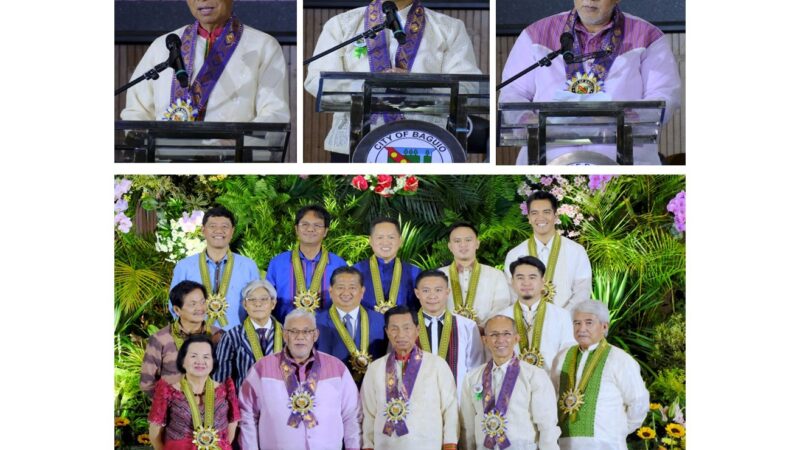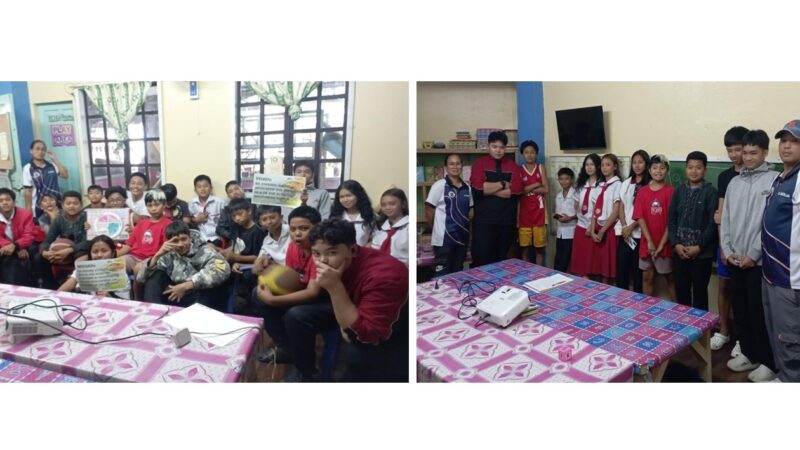Agriculture department records highest rice production in country’s history
BAGUIO CITY– Rice production output has reached 8.87 million metric tons (MMT) in the first half of 2021, six percent higher than the same period last year which was 8.72 MMT, the highest in the history of the country, Department of Agriculture (DA) Secretary William Dollente Dar said during a virtual presser (post-SONA) at the DA Cordillera regional office on Monday, July 26, 2021.
Dar said the country is likely to achieve another record-high production of 20.4 MMT of palay this year with the bulk of the full-year harvest coming from the wet-cropping season.
The secretary added that corn, onion, coffee, and banana production are also increasing and attributed the progress to the use of technology and innovations sustained by the government.
“The country has really moved forward in all respects, but we were set back due to the big challenges…but the spirit of the Filipino must rise again, we have to rise as a nation…we have a good leader in the person of President Rodrigo Roa Duterte,” Dar said.
The secretary also said that with the success of the department’s “Plant, Plant, Plant” program which is now a household name, the Urban Agriculture program will soon be institutionalized.
“We want every household to participate in producing their own food especially so because we do experience lockdowns caused by the pandemic,” Dar said.
Dar said that the department has had given away plenty of seeds, plants, and seedlings, and the demand continues.
He also said that backyard gardening will soon be put to practice once again, as well as gardening in schools and in public places, and in military camps.
“The nation has still so many needs that we have yet to satisfy, but rice production should remain to be the focus because Filipinos eat rice three times a day,” the secretary said.
Livelihood programs and projects for the poor and support for fisherfolk affected by the West Philippine Sea
The secretary said that the department’s programs and projects play a crucial role in boosting agricultural productivity and income, increasing food security, improving rural livelihood, and promoting agriculture as an engine of inclusive, pro-poor economic growth.
“We know that those who are in poverty are really lacking the needed capital, so kami ay nagbibigay ng mga intervention like poultry, livestock raising, vegetable production, and fruit reproduction hangga’t maiahon natin sila sa kahirapan,” Dar said.
The secretary also said that the impact of the Special Area for Agricultural Development (SAAD) project was seen by Congress and that the latter is now seeking for the expansion of the project to more provinces.
SAAD is a special project focusing on 30 priority provinces as part of President Rodrigo Duterte’s thrust to increase food production and alleviate poverty.
It aims to benefit the poorest sectors in the community, either as individuals, households, or associations, in three components: social preparation; livelihood projects; and marketing assistance and enterprise development.
“Fisherfolks affected by the West Philippine Sea will also be considered for opportunities in land-based livelihood projects for added income,” Dar said.
Programs for the youth
Dar said that the department has also several programs for the youth, which include scholarships, internships, and grant programs to support start-up businesses of the younger generation and to encourage the youth to engage in agriculture and agri-business.
“The average age of our farmers is 57 years old, and in another ten years, they will retire…we must continuously motivate, inspire and capacitate the younger generation to take on the challenge to help feed the nation, and earn in the process,” Dar said.
Dar said the program “Mentoring and Attracting Youth in Agribusiness” (MAYA) has already produced 880 graduates since it started.
MAYA is a 24-week internship program that aims to develop young Filipinos into “agripreneurs” or possibly technocrats, and open to graduates of any four- or six-year degree course, preferably on agriculture, fisheries, agribusiness, and other related academic disciplines, and who are 20 to 30 years old.
They will be deployed as interns to different DA national (Office of the Secretary) and regional field offices (RFOs) for 24 weeks, with a P20,000-monthly allowance, and may soon either pursue a career in the DA or any government agency or opt to venture into an agri-fishery enterprise for which they may apply for a zero-interest loan with the DA’s Agricultural and Credit Policy Council (ACPC) after their internship.
“We will advocate the institutionalization of programs and projects by way of legislative support” to ensure its sustainability even after President Duterte’s term or change in administration, the secretary said.
“Even with all these challenges affecting the country, I think if everyone unites with the leadership of President Duterte, walang problema na hindi natin makakayang i-resolba…we still would like to believe that we have to really rise up, be one, and be a strong nation again,” Dar said. //Merriam del Rosario-FNS




